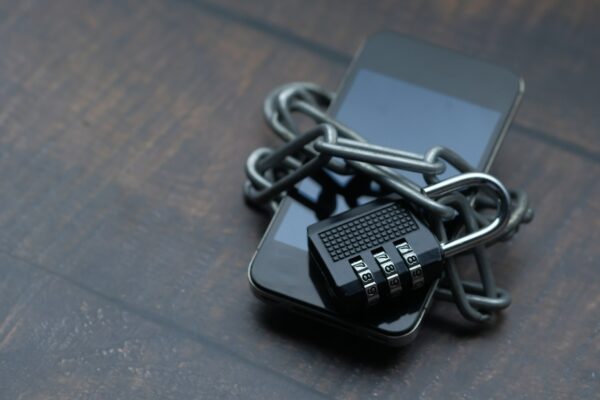Switch it off
Switch it off
Benefits of a Digital Detox
Do you catch yourself scrolling mindlessly on social media? Losing track of time? Procrastinating on chores? Favoring screen time over friends and fam time? Can’t seem to switch off at night? Struggling to keep busy without checking your device? If so, you are not alone. Welcome to the club!
According to a recent survey, roughly 41% of the American population self-identify as being cell phone addicts. This constant connection to a digital device can ultimately take a toll on your quality of life. An overload to your senses, it might be a good idea to think about having a digital detox. Breaking away from your screen addiction can be beneficial, and not just for your mental health but your physical health too.
What is a digital detox?
A digital detox is considered a period where you intentionally reduce the amount of time you spend online and/or on your devices, with some opting to disconnect completely. If you’re finding that your devices are taking over your life, then taking some time for a digital detox might be exactly what you need.
Getting started

The most important step is the first one. There is no right or wrong way to do this, and you don’t necessarily need to go completely cold turkey either. The fundamental point is to do what you can to limit your digital use throughout the day.
- Pay attention to when you use your phone, and how it makes you feel
Be observant of your phone usage to better understand the relationship you have with it. Why do you use it when you do? Are you using your phone productively or are you bored? Do you get a big sense of FOMO? Are you using it for social media? How does it make you feel? What are you giving up by being on your phone? Getting a better understanding of how you feel when using your device can help you regain control.
- Schedule a break
If you’ve noticed that you’re obsessively using your devices, then having a time-restricted detox may help. Curb that addition by blocking out periods of time where you don’t allow yourself to check your phone, for say 15 – 30 mins. Or switching it off altogether, whilst you carry on with your other tasks, whether this is at work or with other responsibilities at home.
- Use the technology to help you
A benefit of modern technology is that they’re tracking everything you do. Now, this isn’t a rant about Big Brother watching us, but our devices often come with their own built-in usage trackers. So use it to your advantage! We recommend utilizing this simple tool, as it will give you a daily or weekly overview of usage, usually breaking this down by apps, time spent, and at which points of the day. Additionally, and probably more importantly, they can be used to set time limits on various apps, such as limiting the number of hours a day you’ve allowed yourself to use social media apps.
- Disconnect before bedtime
Though we’re sure you’ve heard this many times before, it’s important enough to repeat again. Looking at screens and being exposed to blue light before bed can have a significant impact on your circadian rhythm and can disrupt your sleeping pattern. So make sure you switch off or disconnect your phone at least an hour before you plan to go to bed. This will help you get into a good bedtime routine and improve your sleep. None of this scrolling in bed nonsense! Pick up a book instead.
Benefits of a digital detox

If you are thinking of giving yourself a digital detox, these are the potential benefits you can experience straightaway:
- Reconnect with the real world
Switching off devices gives you the opportunity to reconnect with the people and physical world around you. Something we are increasingly forgetting to do as technology exponentially grows its remit. So switch off your phone, take out those earphones, and get out to experience the world you live in. Become accustomed to the sights and sounds of your surroundings, your commute home from work, and the many other lives happening physically around you. - Reconnect with people
Though the purpose of the internet was a way for people to connect and – with our devices being the vessel of communication – it can often lead to us feeling surprisingly disconnected. Recent trends show that Millennials and Gen Z alike are feeling lonely despite the world at their fingertips. Putting away your phone and allowing yourself to sit in the company of those around you can be a breath of fresh air, and negate those feelings of digital loneliness. Why not suggest that the next time you meet with your friends or family: put the phones away, switch them off and let’s get back to the ‘90s way of communicating: talking IRL. - Discover new hobbies
Using our devices can be very time-consuming and distract from any existing or potential new hobbies. When allocating time to switch off devices and be present, you should be proactive in using that time to do something that benefits you too. Have you been wanting to get into yoga? Or meditation? Do you love going for long walks at dusk? Have you always wanted to learn a new language? Or how to play a new instrument? Join a life drawing class? Get into painting? Consider how much time you spend on your device that might be better suited doing that thing you said you’ve always wanted to do.
- Take personal time
The revolutionary thing about our electronic devices is that they allow a global community to stay connected. At all times. Though incredible when you think about it, we sometimes just need some time to switch off and be by ourselves. No out-of-hours work emails, group chat notifications of gloomy news push updates, allowing you to switch off your mind from the wider world and genuinely relax. - Break the cycle
For many of us, the action of checking our phone or emails has become an unconscious habit. On average, Americans check their phone 344 times a day. That’s every 4 minutes. Clearly an unconscious and instinctive habit we’ve developed like a nervous tick. Break this cycle by ensuring your device remains in your pocket or bag, and not out on the table. - To improve attention span
Talking about breaking the cycle, going on a digital detox will also likely strengthen your willpower. Stay in the moment by not instinctively picking up your phone every 4 minutes. Whether you’re socialising with friends, at work, or just trying to enjoy some you time, we all know that a phone lighting up is enough to draw attention away from whatever it was you were doing. Cutting up your attention span in the long run can make you less productive so not only will a digital detox stop you from being drawn to your device, it will also help develop your attention span. - Develop a healthier relationship with technology
Just because you want to do a digital detox, it doesn’t mean you have to give up your devices forever. Taking time to establish boundaries with your digital devices can help you develop a healthier relationship with technology. After all, modern technology was developed to help us, not hinder us. With less dependency on our devices, you can identify when using devices will actually be beneficial to your life.
Final thoughts
Each of us are different. We deal with things differently. That’s the beauty of the world. So there is no real formula or rule around who needs a digital detox, and how best to do it. Find what works for you, and if it isn’t working, pivot and find an alternative solution. This is all in aid of improving your quality of life, so make sure you’re doing what’s right for you.
Sharing is caring!
Holistic Therapy: Exploring Somatic Experiencing
In the quest for mental and emotional well-being, individuals often seek therapeutic approaches that go beyond traditional talk therapy. Holistic therapy, which addresses the interconnectedness of the mind, body, and...
Read article
Cannabis and Psychedelics: The Perfect Match?
Both cannabis and psychedelics alike have been buzzing around the wellness space over the last couple of years. With growing attention around their potential medical, social, and spiritual benefits –...
Read article
A Guide On Regenerative Farming
Regenerative agriculture has emerged as a promising and innovative approach to farming that not only seeks to produce food and fiber but also aims to restore and enhance the environment....
Read article
Plant-Based Meat vs. Real Meat
In recent years, plant-based meat alternatives have been gaining popularity, with many consumers choosing them over traditional animal-based meats. As the demand for plant-based products continues to grow, it raises...
Read article
The Art of Shibari
At Hoo Raa, we believe that intimacy is an art form that deserves to be explored and celebrated. That's why we're excited to introduce you to the captivating world of...
Read article
DIY CBD Recipes to Try at Home
Music festivals are an extraordinary celebration of art, creativity, and unity. Set the scene: the summer sun illuminates the sky, rhythmic sound waves fill the air, and the murmur of...
Read article
CBD Fitness Recovery Tips
Music festivals are an extraordinary celebration of art, creativity, and unity. Set the scene: the summer sun illuminates the sky, rhythmic sound waves fill the air, and the murmur of...
Read article
How CBD Can Elevate Your Experience at Music Festivals
Music festivals are an extraordinary celebration of art, creativity, and unity. Set the scene: the summer sun illuminates the sky, rhythmic sound waves fill the air, and the murmur of...
Read article
How CBD Can Help Unlock Your Artistic Potential
In the realm of artistic expression, the desire to tap into our creative potential is an ever-present force. Artists constantly seek inspiration, focus, and a means to unleash their imagination....
Read article
Kinky Boots: How to Explore Kinks
Let’s talk kink - a word that covers a vast array of unconventional sexual acts. Vanilla sex is great, but sometimes it’s just… too vanilla. If you get what we...
Read article
Edging 101 – Maximize your Pleasure
Edging is an orgasm control technique. Used to increase stamina, intensify orgasms and explore power exchanges in the bedroom, it involves a little thing called delayed gratification. In other words,...
Read article
Switch it off
Do you catch yourself scrolling mindlessly on social media? Losing track of time? Procrastinating on chores? Favoring screen time over friends and fam time? Can't seem to switch off at...
Read article
A Holistic Home: The Necessities for a Zen Space
Why is a zen space necessary? Life is hectic. It can be busy, draining, chaotic. And from time to time, life can become a bit too much. We all need...
Read article
Running out of sheep to count?
Ridiculously restorative, sink-in deep sleep. We might not all know her but we certainly dream about her. You know - the kind of sleep that heals every ache and generates...
Read article
Bottoms up
We love some good mixology and trying fun potions and concoctions whether that’s on a little self-date or enjoying quality time with our gang. As this year comes to a...
Read article
Naughty or nice
We’re turning up the heat this winter season by spicing it up with new traditions and setting the vibe for 2023. The holidays can quickly become jam-packed with festivities with...
Read article
Dealing with the fam during the festive period
Here’s a fun fact for you: according to one study, 88% of people experience holiday stress. That is when the festive period rolls around and we’re in close proximity with...
Read article
Yes, yes, YES! Make 2023 your best ever
We want to hear a hell yeah for the power of orgasms. Do your research and you’ll discover that the Big O has a long list of health benefits (more...
Read article
We’re having a microdosing moment
Master image copyright: Marius SperlichWe don’t doubt the term has probably crept up in convos with friends. Heard it on social? Maybe read something in an article? Or even in...
Read article
The ultimate traveling guide: taking a literal trip with CBD
Bags packed, essentials added, traveling outfit sorted (we vote sweats). Chances are, you’ve already nailed your luggage, checked weight restrictions, and everything else. But have you stashed your CBD in...
Read article



